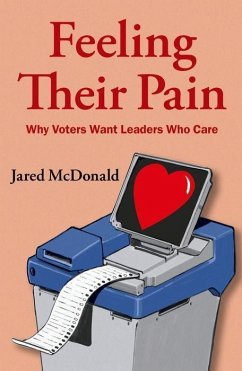The book is the first of its kind to systematically examine why voters perceive some politicians as compassionate, whereas others are perceived as cold and aloof. The central finding is that when Americans evaluate whether a politician "cares about people like me," they are looking for different types of commonalities that link themselves with the candidate. These commonalities help overcome the natural skepticism American voters have about the authenticity of the candidate, convincing them that this politician can truly put him or herself in the shoes of the voter. The argument made in this book is supported using a broad array of data, including experiments, surveys, interviews with campaign officials, and the analysis of campaign speeches.








